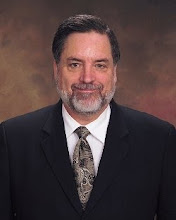Fight Truth Decay!
I fear our society is eroding morally and intellectually. Actions are motivated by beliefs and many of us are strongly committed to beliefs that simply don't make sense resulting in harmful actions and attitudes. If we are really serious in this country to stop hate crimes and prejudice, we must be willing to examine our beliefs and discard those that are irrational. We must learn skills to improve our reasoning and to weed out irrational beliefs that could, potentially harm us, our loved ones or others.
But there's a problem....
People rarely examine their beliefs. Beliefs color the way we view the world, form our self-images, deal with tragedies, determine our purpose, and provide the foundation for all our decisions. However, from my experience, people rarely examine their beliefs for reasonableness nor do they understand how and why they maintain their beliefs. Astonishingly, they will vehemently defend these ill-formed beliefs before validating them for reasonableness or corresponding them to reality.
Why? Because....
Humans are not hard-wired for rationality. The reason for this phenomenon lies in the nature of the brain structures in the frontal lobes whose function is to provide explanations regardless of their rationality. Despite the fact that everyone reasons - for it’s a function of the brain - humans are not naturally skilled in valid reasoning. Rather, humans are naturally reactive (consider road rage, for example), possessing adaptation skills necessary for survival and reproduction.
Change is hard because...
Humans reinforce the beliefs they possess. Since our minds are predisposed for survivability, and not rationality, it's easy to fall prey to self-deception. Regardless of their validity, we tend to reinforce the beliefs we have and resisting adopting new ones. As Demosthenes, a 4th century Greek philosopher said, "Nothing is easier than self-deceit. For what each man wishes, that he also believes to be true."
The desire for our wishing thinking to be true can be so strong we unconsciously cement it into our worldview without ever questioning their validity. In short, we will deceive ourselves into believing our desires ARE true. Ironically, it seems our strongest beliefs, the ones we vehemently defend, are those we never question.
Thus, we drift away from truth rather than closer to it, unless we realize...
The introspective application of logic increases rationality and mitigates truth decay. Truth should be our goal - not lies, nonsense and deceptions. Self-deception erodes and decays Truth rather than seeking to preserve it. It leads to racism, bigotry and intolerance. Truth equips us to live life on life's terms, and logic, when properly applied, preserves and increases Truth. Thus, by critically examining and discarding irrational beliefs one mitigates self-deceptions, values others, increases their survivability and moves closer to Truth.
Lack of an introspective application of logic is the reason that otherwise, smart, intelligent people maintain unreasonable beliefs.
What can you do to prevent truth decay?
First, equip yourself. Devote 30 minutes a day learn logic. Arise from bed a half hour early, if necessary - it's well worth it. Find tutorials on the Internet. Better yet, take an online course from an online University or purchase a professionally lead video course.
Second. Apply your skills. As your critical thinking skills grow, identify fallacies in advertisements, radio broadcasts, and the media. I guarantee you'll be amazed at the amount of deception present in your society. Also, work logic puzzles found on the Internet and in magazines.
Third. Validate your beliefs. After becoming skilled in identifying incorrect reasoning, apply your new critical thinking skills to yourself to identify unreasonable and invalid beliefs. Question the source of your beliefs. Become willing to change even your most cherished beliefs. Justify your conclusions and guard against assumptions. Every belief should be examined and justified before it is allowed into your worldview. Don't accept a belief just because you were told to believe it by an authority. Discover for yourself if it has merit. And, certainly, don't accept a belief because its reflects your wishful thinking. That leads to self-deception, guaranteed.
Fourth: Teach. Teach your children well. Make it a game. Tell them a story containing irrational reasoning and offer points for identifying the invalid logic. Play logic games and puzzles with them. Make it a family affair. Make it fun!
Fifth. Become a truth evangelist and join me to encourage others to fight truth decay! Those who are enlightened have a duty to enlighten others and raise everyone's consciousness. Use your powers for good!
Addendum: As an exercise in the sort of illogic encountered in daily life, consider the following statement: all religions lead to God (Religious Relativism). What's wrong with that statement?
It means well, but the problem appears when one reviews the fundamental doctrines of the world's religions which contradict each other. One or more religions would need to discard or compromises fundamental doctrine they believe leads to God. Try reconciling Christianity and, say, Paganism without compromising the doctrine and traditions or one or both. It can't be done.
So, logically, all religions can be wrong, or, one or more of them can be correct, but ALL of them can't be correct since a logical contradiction would result. This is how truth decay begins. Don't be duped by sincere people with good intentions. A deception is still a deception regardless of its sincerity.

